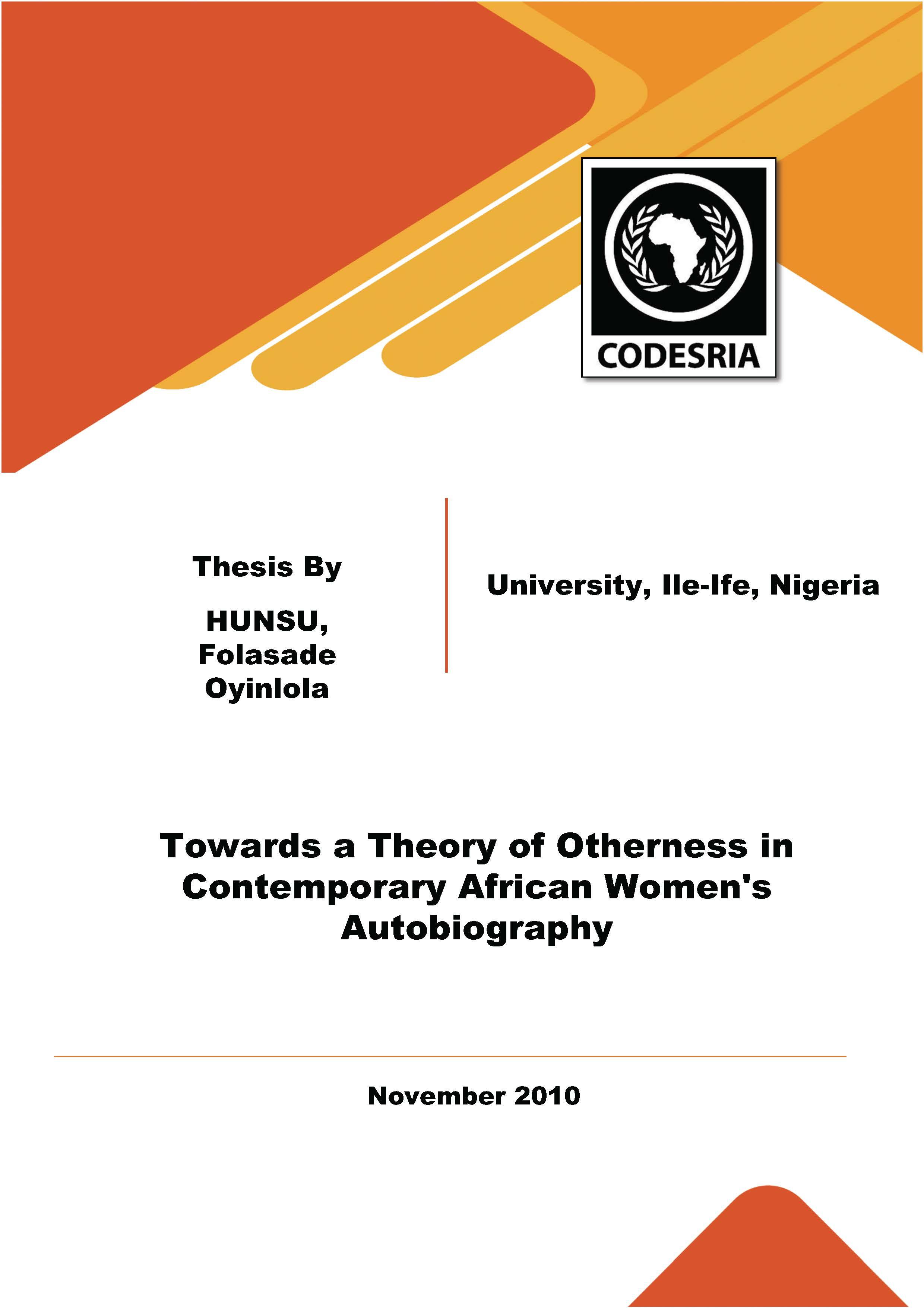Towards a Theory of Otherness in Contemporary African Women's Autobiography
Keywords:
Literature, women, writing, feminism, autobiography, literary criticism, literary theory, literary tradition, othernessSynopsis
The study examined the thematic concerns, narrative strategies and the influence of national and familial histories on contemporary African women's autobiography. It examined the approach of these women to gender issues and the various ways in which they demystify cultural beliefs that are against the self-actualisation of African women. It analysed the positive and favourable portraiture of African women's otherness in autobiography thrÔugh their deployment of the power of the subject-narrator. This was with the view to proposing an alternative approach to reading the construction ofselfand other in contemporary African women's autobiography. Three fictional and three non-fictional autobiographies were selected for analysis. Texts were selected from African women 's autobiographies published between 1996 and 2007 to reflect, 10· some extent, the multiple geographical locations and ideological persuasions, linguistic, cultural and historical divergences of women writers of autobiography in Africa. The fictional texts were Calixthe Beyala's Your Nome Shall be Tanga from Francophone Central Africa, Akachi Adiniora-E-zeigbo's Children of the Eagle from Anglophone West Africa and._ Sindiwe Magona's Molher 10 Molher from Southern Africa. Non-fictional texts included Nawal El Saadawïs A Daughter of Isis from North Africa, Wambui Otieno's Mau Mau·., Daughler. A life Hislory from East Africa and Tendayi Westerhofs Un/ucky in love from Southern Africa.
The narrative styles employed by these writers to underline their otherness or difference from men, and other wo111en were analysed under two broad categories; vocality and resistance as markers of otherness and female bonding and representations of motherhood as divergent modes of constructing otherness. Postcolonial and feminist theories were used to interpret these texts. The results revealed that these women narrated life stories based on the concept that they were unique individuals as the olso discourse of the Yoruba of South-western Nigeria.






